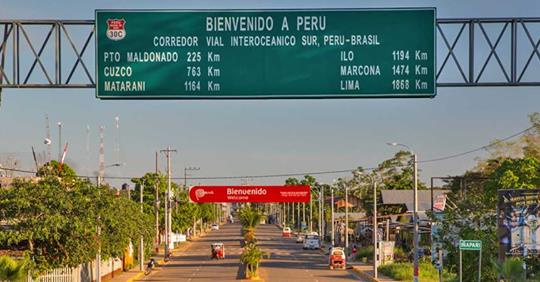Two recent articles highlight research on the social and environmental safeguards of Southern development banks (banks from China, Brazil, CAF and IDB), undertaken by colleagues at Boston University´s Global Development Policy Center, the Universidad del Pacífico, FLACSO – Ecuador and INSEAD – Bolivia. Kevin Gallagher and Rebecca Ray lead this project from BU, and the UP the team consists of Juan Luis Dammert (lead author of the Peru case study), Rosario Santa Gadea and Rosario Gomez. Although this summary in Mongabay stresses deforestation, researchers also examined social and labor issues related to these projects:
- «International development finance institutions (DFIs) invested heavily in large-scale infrastructure projects that triggered significant deforestation in the Andes Amazon, especially within the nations of Ecuador, Peru and Bolivia between 2000 and 2015, according to recent research published by Boston University’s Global Development Policy Center.
- Using satellite data, the study analyzed 84 large infrastructure projects and determined that the area around them experienced tree cover loss at a rate of over four times the average seen in comparable areas without such projects in those countries. That’s a forest carbon-sink loss equivalent to the combined annual CO2 emissions of Colombia, Chile and Ecuador.
- Infrastructure now accounts for 60 percent of global greenhouse gas emissions, yet DFIs want to increase future lending from billions to trillions to meet global demand. This could imperil national Paris Climate Agreement goals (which in countries like Brazil are linked to preventing deforestation), and also could add to potentially catastrophic global carbon emission levels.
- The study isn’t merely academic: More than $70 billion in infrastructure projects, supported by development banks and the private sector, are planned for the Amazon basin between now and 2020. The researchers hope lessons learned from past infrastructure projects and highlighted in their study will improve future project oversight to help curb deforestation.
See also this note in EcoAmericas.


